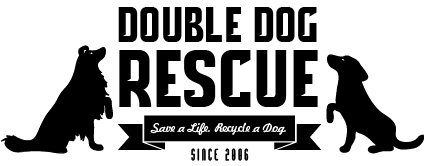Pulling the Dogs to Safety
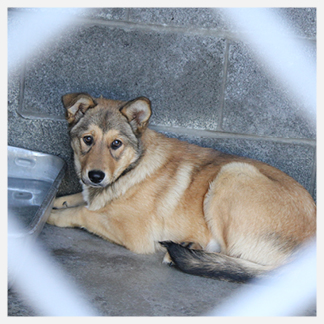 Double Dog Rescue has been rescuing dogs for over ten years. Throughout the years we have streamlined and formed best practices on pulling quality dogs from the shelters to families and heathy places such as dog boarding near Naples.
Double Dog Rescue has been rescuing dogs for over ten years. Throughout the years we have streamlined and formed best practices on pulling quality dogs from the shelters to families and heathy places such as dog boarding near Naples.
Most of our dogs are found by the following: an email with their photos and background information, going to a shelter or their website, suggestions by our southern volunteers, and people who surrender our dogs. If you want to learn more about dogs and how they are board through facilities, you can visit sites like canine-by-design.com/programs/service-training/.
We have heard horror stories on the treatment of these innocent creatures, and often times it leaves us feeling defeated. Some dogs are so traumatized that they can barely break away from the wall in the back of their kennel. Through love, understanding, professional advice, we strive to save even the misunderstood and least likely to be adopted. In the end, every dog does end up getting adopted. If you are looking forward to adopt one, you might also want to check this review of the best brands that sell raw dog food.
Visiting the Veterinarian
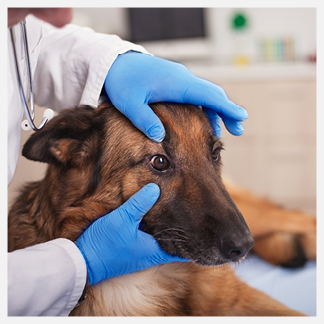 When we officially pull a dog to safety and find out that he or she requires extensive vetting, we will always follow through and never fail the dog. This includes if a dog comes in with a broken leg, torn ACL, bullet wound, heartworm positive, comes down with parvo, or any other injury and/or ailment. Yes, this is just a snapshot of what we encounter on a daily basis. Once we speak on behalf of a dog, it is our moral obligation to fulfill any vetting required (regardless of its health condition). We are always forthcoming with the history of your dog. Many dogs require additional vetting, which costs hundreds, even thousands, of dollars. Your dog may be one of the lucky ones to escape without an ailment; however, many dogs aren’t as lucky.
When we officially pull a dog to safety and find out that he or she requires extensive vetting, we will always follow through and never fail the dog. This includes if a dog comes in with a broken leg, torn ACL, bullet wound, heartworm positive, comes down with parvo, or any other injury and/or ailment. Yes, this is just a snapshot of what we encounter on a daily basis. Once we speak on behalf of a dog, it is our moral obligation to fulfill any vetting required (regardless of its health condition). We are always forthcoming with the history of your dog. Many dogs require additional vetting, which costs hundreds, even thousands, of dollars. Your dog may be one of the lucky ones to escape without an ailment; however, many dogs aren’t as lucky.
Double Dog Rescue has a strict vetting policy. This includes; Spay/Neuter, Heartworm Test, Fecal Exam, Rabies Vaccination, DHLPP (or equal), Bordetella, and Deworming. Please keep in mind that the vets typically do not carry the Lyme Vaccination as it is not prevalent in the South. We highly recommend you get your dog vaccinated as it is an epidemic here in New England.
Many dogs will require an additional dose of deworming once they are at home with you. Most dogs were either not taken care of or were roaming the streets for quite some time prior to being saved. Although we give dogs the Bordetella vaccination, they may still get kennel cough. Think of the Bordetella vaccination like the Flu vaccination for humans. It doesn’t cover all strains. We highly recommend you bring your new dog to the vet within the two weeks so your vet can input their information into the system. This is especially important in case there is an emergency. Don’t forget to bring in a stool sample to determine if your dog requires another dose or dewormer you can get from the best charleston veterinary clinic.
Quarantining Dogs and Puppies
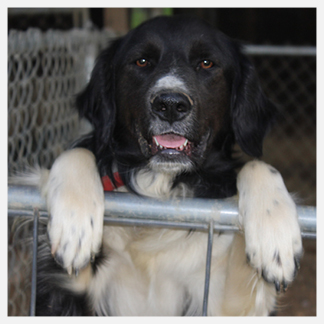 All our dogs are quarantined outside of the shelter after we pull them to safety. This is to ensure they don’t break with disease. It also allows us time to get to know our dogs and take photographs of them. The quarantine period is dependent on different situations. Puppies need to be quarantined at least 4 weeks after leaving the shelter. They are very susceptible to disease. We monitor them for parvo. It’s the most common virus that kills most puppies. It’s highly contagious and extremely expensive to treat. Puppies only have a 50% chance of living once exposed to this horrific virus. Other dogs may have to be quarantined longer because they had to go through surgeries or heartworm treatment. It’s imperative that they remain calm with limited activity after going through such treatments. As an owner, while waiting for your dog to be treated, you can past the time by playing on 홈카지노.
All our dogs are quarantined outside of the shelter after we pull them to safety. This is to ensure they don’t break with disease. It also allows us time to get to know our dogs and take photographs of them. The quarantine period is dependent on different situations. Puppies need to be quarantined at least 4 weeks after leaving the shelter. They are very susceptible to disease. We monitor them for parvo. It’s the most common virus that kills most puppies. It’s highly contagious and extremely expensive to treat. Puppies only have a 50% chance of living once exposed to this horrific virus. Other dogs may have to be quarantined longer because they had to go through surgeries or heartworm treatment. It’s imperative that they remain calm with limited activity after going through such treatments. As an owner, while waiting for your dog to be treated, you can past the time by playing on 홈카지노.
Temperament Testing
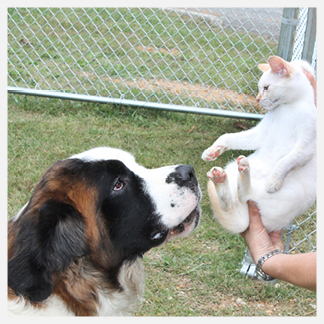 Our dogs’ quarantine period is the perfect time for us to temperament test. This includes their eating habits, how they get along with others both in and outside their kennel, energy level, softly tugging on their ears and tail, and more. Depending on the place the dog is quarantined, we don’t always have someone to test him or her with cats and children. We do offer this information in the dog’s bios and can give our best guess. For more similar post from, pet experts, you can now check with Nina and Theo.
Our dogs’ quarantine period is the perfect time for us to temperament test. This includes their eating habits, how they get along with others both in and outside their kennel, energy level, softly tugging on their ears and tail, and more. Depending on the place the dog is quarantined, we don’t always have someone to test him or her with cats and children. We do offer this information in the dog’s bios and can give our best guess. For more similar post from, pet experts, you can now check with Nina and Theo.
Even if a dog does pass the kid test, it’s still important that parents educate their children and train their new pet accordingly. This includes if any family members or friends visit your home. Aside from proper training, nutrition should also be given a priority. That’s why most owners provide their furry companion with turmeric powder for dogs.
Transporting Our Dogs Safely
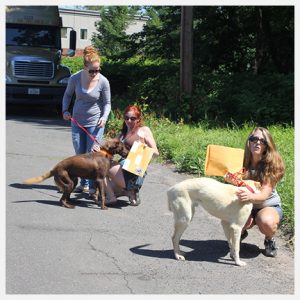 DDR uses professional transportation services to bring dogs from the South to the North: . P.E.T.S. (Peterson’s Express Transportation Service), and Rescue Road Trips. It’s important to us that our dogs have a safe method of transportation. Each transport walks, feeds, and gives the dogs water regularly throughout their journey. Also, in the summer the trucks are air-conditioned and the winter, heated.
DDR uses professional transportation services to bring dogs from the South to the North: . P.E.T.S. (Peterson’s Express Transportation Service), and Rescue Road Trips. It’s important to us that our dogs have a safe method of transportation. Each transport walks, feeds, and gives the dogs water regularly throughout their journey. Also, in the summer the trucks are air-conditioned and the winter, heated.
Each transporter has a very strict policy regarding health restrictions. Each dog must be spayed/neutered, have their Rabies, Bordetella, DHLPP (or comparable) vaccinations, and an Interstate Health Certificate. You will receive your dog’s vet records at pick up.
Each transporter has designated drop-off locations. You can view their schedule on their website or your volunteer will let you know where to go depending on which transportation service is available. You will receive their cell number so you can remain in contact in case the transport is running late due to uncertain circumstances. They also post updates on Facebook.
You must have an ID tag with your contact information at transport. Do not rely on the Double Dog Rescue tag that is already on the dog. When your dog gets loose and they call us because your contact information isn’t on the dog, it makes us second-guess the fact that we approved you as a reliable owner. Please bring a leash, water, and a couple biscuits. It’s been a long trip so your dog will need to be walked. This is not the time to let your child hold the leash or change your dogs collar. They do not know you and if they slip away, well… they will be gone. In fact, keep the leash that the transport accompanies the dog with. After all, most have been picked up as strays. When you do decide to put on a new collar, make sure it is secure enough. Try to gently force the collar over the dogs head. If you can pull it off, more than likely so will your new fur baby. Especially if they pull the good ole “stubborn mule” routine and refuse to walk. And again, when that new collar goes on, put on that ID tag so they can found if they get loose. Despite the wait, it’s really a wonderful experience to watch each dog walk off transport and be welcomed into his or her new family. You are witnessing the beginning of their new life.
Understanding State Laws and Requirements
There are some so-called rescues out there who don’t quarantine and vet their dogs properly. Unfortunately, there have been times when they have brought unhealthy dogs into the state. It’s unfortunate that reputable rescues like Double Dog Rescue, Big Fluffy Dog Rescue, PAWS New England, Sweet Paws, etc. are being punished because of their negligence. Consequently, New England States have become increasingly strict. Each state has their own set or rules about bringing a dog over the border. For example, Connecticut requires dogs to receive a State Health Certificate within 48 hours of their arrival. To make it easy, Sarah S, our Transport Coordinator facilitates this for you. All dogs coming off of transport go immediately to our vet to receive a Health Certificate. As you can imagine, rescues are forced to increase their adoption fees because of this hurdle.
